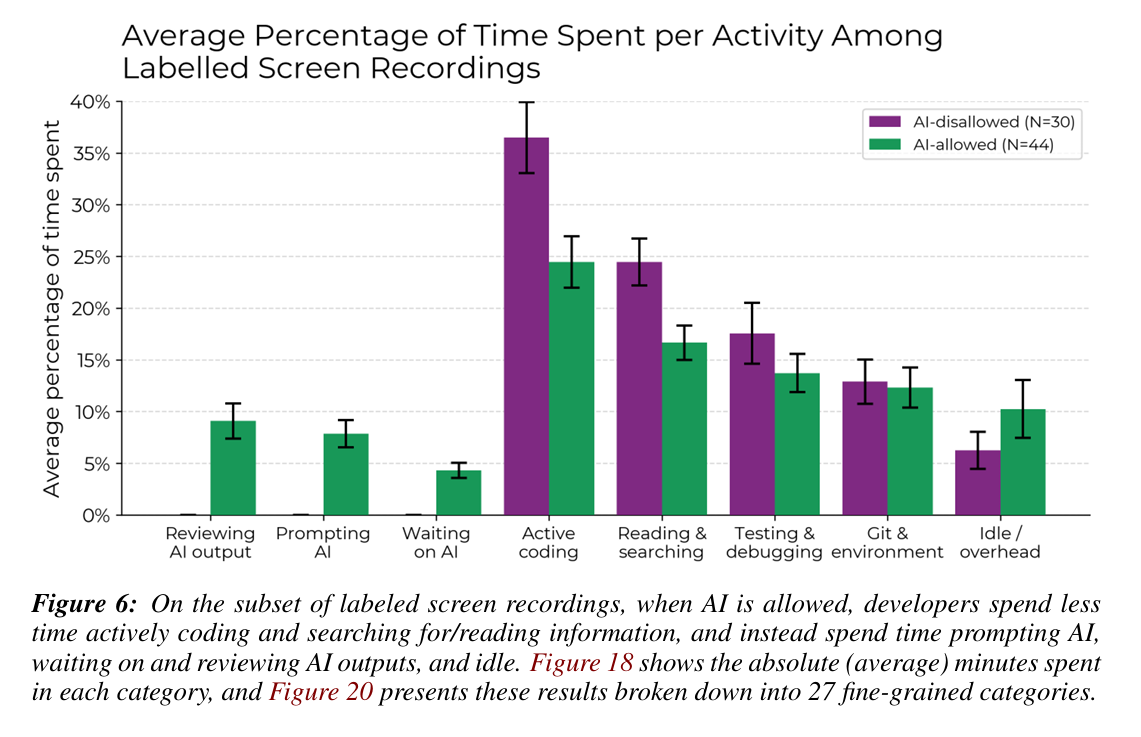
Credit:
METR
On the surface, METR’s results seem to contradict other benchmarks and experiments that demonstrate increases in coding efficiency when AI tools are used. But those often also measure productivity in terms of total lines of code or the number of discrete tasks/code commits/pull requests completed, all of which can be poor proxies for actual coding efficiency.
Many of the existing coding benchmarks also focus on synthetic, algorithmically scorable tasks created specifically for the benchmark test, making it hard to compare those results to those focused on work with pre-existing, real-world code bases. Along those lines, the developers in METR’s study reported in surveys that the overall complexity of the repos they work with (which average 10 years of age and over 1 million lines of code) limited how helpful the AI could be. The AI wasn’t able to utilize “important tacit knowledge or context” about the codebase, the researchers note, while the “high developer familiarity with [the] repositories” aided their very human coding efficiency in these tasks.
These factors lead the researchers to conclude that current AI coding tools may be particularly ill-suited to “settings with very high quality standards, or with many implicit requirements (e.g., relating to documentation, testing coverage, or linting/formatting) that take humans substantial time to learn.” While those factors may not apply in “many realistic, economically relevant settings” involving simpler code bases, they could limit the impact of AI tools in this study and similar real-world situations.
And even for complex coding projects like the ones studied, the researchers are also optimistic that further refinement of AI tools could lead to future efficiency gains for programmers. Systems that have better reliability, lower latency, or more relevant outputs (via techniques such as prompt scaffolding or fine-tuning) “could speed up developers in our setting,” the researchers write. Already, they say there is “preliminary evidence” that the recent release of Claude 3.7 “can often correctly implement the core functionality of issues on several repositories that are included in our study.”
For now, however, METR’s study provides some strong evidence that AI’s much-vaunted usefulness for coding tasks may have significant limitations in certain complex, real-world coding scenarios.

